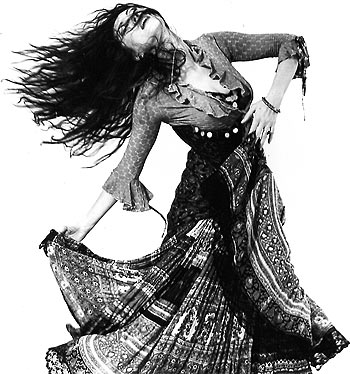Barukh atah Adonai, hamav'dil bein kodesh l'chol (Amein).
Blessed are You, Lord, who separates between sacred and secular. (Amen)
For those who keep time the Jewish way, there are, of course, seemingly endless amounts of rituals involved in doing so. While there are many I could write about, Havdallah is perhaps my favorite because of its contemplative qualities. Havdallah is observed every Saturday night in the passage of Shabbat, a consecrated day of peace and rest, when the stars come out in the sky and the return of the "real world" of work and other life stresses sets in. Literally meaning "separation", Havdallah is the turning point between the stillness and holiness of Shabbat and the chaos rest of the week.
Here in Jerusalem it doesn't take long after the solemn prayers of Havdallah before the noise and commotion of the city restores itself. From my patio, I watch the blue and green subterranean lights of television sets flip back on behind sheer curtains in the sea of windows beneath me. In the distance, the main road that connects travelers between Jerusalem and Tel Aviv suddenly becomes a long string of cars finding their way home. Radios restore themselves to blaring at full volume. Teenagers instantaneously materialize in the roundabout, to resume looking cool with lit cigarettes and skin tight jeans. Just like the ferrel cats of this part of the world, the secular and religious teenagers equally re-emerge from a day of rest to return to the jungle of an Israeli adolescence made all too brief by the certainty of army service or late teenage marriage. Religious men pass by from their respective places of male-only evening worship. They walk slowly and deliberately beneath their kippot, as if to delay the reality of the setting sun and tomorrow's early work day. And, of course--so no one forgets that this land is shared by all== the Muslim folks across the valley are also religiously reminded of their own way of marking time and the human life cycle. The usual green fireworks--the color of Islam--are set off to punctuate the previous stillness of sky. And the muezzin's call to prayer gives way to a sermon that echoes throughout the valley, on and off for the hour between 9-10pm.
Of course, I have finally found my own Jewish way of marking the passing of time in a place that would do it for me, if I decided to be so mechanically deliberate by being far less deliberative. I have found that I enjoy going for a long run around the neighborhood in the last moments of daylight. Everything cools down with the sun looming just below the horizon. Everyone else waits anxiously for 3 stars to appear in the sky, while I jog by the open homes and doorways of the more observant. For the more religious, my modern Ipod gadget and bare arms attracts a small amount of attention. (After all, it's one thing for a woman to run in public with tight pants on and bare arms. It's another thing for a woman to do so on Shabbat.) Still, I pass by the more voyeuristic as a the real voyeur myself. Ironically, while I seem to be the idiot woman lost in her Ipod coma, what goes completely unobserved is how much I am observing these so-called "Observant".
It is in these moments, when I feel myself being transported once again to that place in the seam between sacred and secular, and all of the other binary points in between. And in these moments, when the desert air hangs almost cool on my sweat-soaked hair (and my heart pounds in tune to the cheesy American pop music blasting in my ears), that I discover a sense of gratefulness for the peace I have found here, in Jerusalem, in myself...
Somehow each moment of Havdallah is a moment of recognizing that no matter what, time will not stop for us. And, indeed, there is a certain beauty for the very human way that life will chaotically (yet necessarily) move itself along.
Namaste

No comments:
Post a Comment